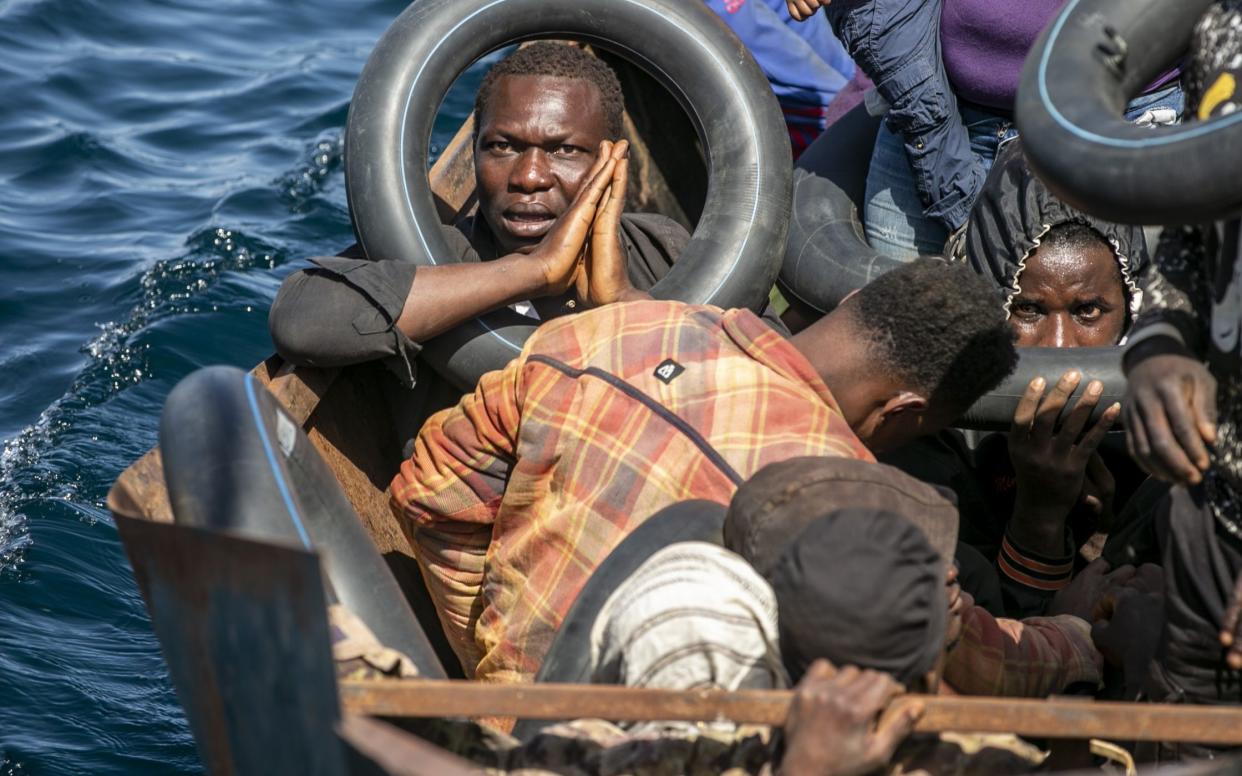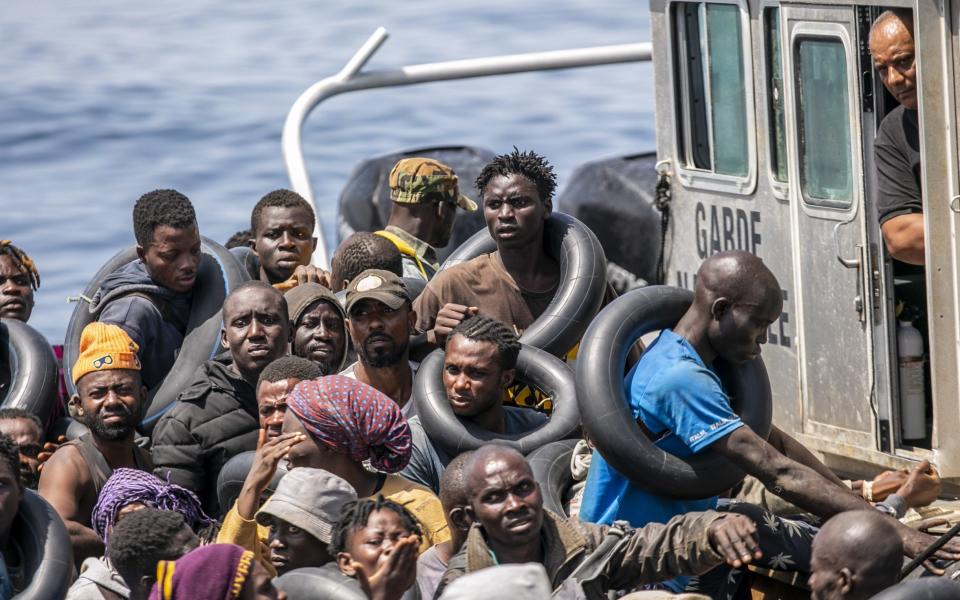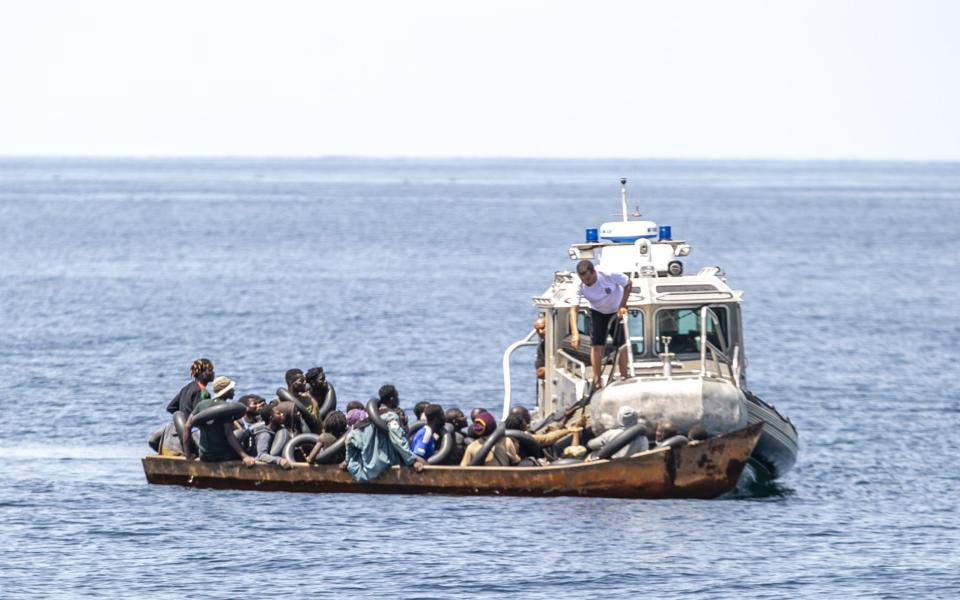‘It’s Europe or death’: Why no amount of EU money has stopped migrants fleeing Tunisia

Felix looks on in despair at the hundreds of sub-Saharan migrants strewn on makeshift cardboard mattresses and dirt-stained blankets in the streets of Sfax, a coastal Tunisian city just 75 miles from Italy.
“There are babies, children, and pregnant women sleeping on the ground,” the 36-year-old from Nigeria, said. “This is dehumanising. This is torture for us.”
Samuel, a 27-year-old migrant who has been on the move for eight years, added: “I lost so many of my friends and brothers to the civil war in South Sudan. I went to Sudan and then Libya before coming here ... Still I have no good place to lay my head.”
Hundreds of sub-Saharan migrants of all ages have been sleeping rough in Sfax’s parks and alleyways for nearly two months. Many were forced from their homes in racist pogroms that swept the city earlier this summer.
The violent crackdown has added urgency to migrants’ plans to set sail for Italy, and the EU, in spite of the millions of euros Brussels and Rome have spent trying to control the flow of people across the Mediterranean.
Luis, a 40-year-old migrant from Cameroon, put it bluntly: “For us, it’s Europe or die. We don’t have any fear anymore.”
Those who make it to Tunisia live as second-class citizens, unable to rent homes, find reliable jobs, or take public transport without harassment.
“The racism is intense,” said Felix, who like many others, travelled to Sfax, a hub for people-smuggling, to catch a boat to Italy. “We don’t have homes or jobs. We don’t even have anywhere to bathe ... I see myself as a slave in this country.”
So far this year, more than 60,000 irregular migrants, the majority from sub-Saharan countries, have reached Italy from Tunisia. Of these, more than half have made the trip since the start of June, when mass violence broke out against black migrants.
Tensions had long been brewing between migrants and locals fearful the city is being overrun by people desperate to reach Europe.

In February, President Kaid Saied branded the estimated 20,000-50,000 sub-Saharans in Tunisia, who make up just 0.4 per cent of the population, a “demographic threat”.
There were waves of mob violence and forced evictions of sub-Saharans after a local man was killed in a clash with several Cameroon migrants in early June.
Moussa, a 25-year-old migrant from Guinea, described the raids that left him penniless on the streets. “A group of guys broke into my house, beat me and took everything I had, even my clothes. I’ve been sleeping here ever since,” he said in a city centre park.
Tunisian authorities were active participants in abuses against migrants. During the unrest, they arbitrarily arrested and expelled around 1,200 migrants to desert areas at the Libyan and Algerian borders, leaving them to suffer with no food or water in the sweltering heat.
‘Threw me into the desert three times’
“They threw me into the desert three times, beating me and taking everything I had,” Mel, a south Sudanese migrant, who fled his country due to its civil war, said. “They told me not to return.”
After weeks of pressure from rights groups, activists, and the United Nations, Tunisia said on Aug 10 that it had brought back the last group of migrants it had abandoned in the desert, but not before dozens had died there.
“I never in my life thought I’d see such events in my own country,” Selim Kharrat, the president of Al Bawsala, a Tunisian human rights organisation and watchdog, told The Telegraph. “It is inhuman.”
The European Union has tried to quell activity along the thriving Mediterranean migration route with little success.

On June 11, it announced it would provide Tunisia with €100 million (£85.5 million) for border management, overlooking reports of abuses committed by Tunisia’s coast guard towards migrants at sea.
Since then, there has been an increase in pullbacks of Italy-bound vessels, migrants and activists say, but the overall number of boats reaching Europe has hardly changed.
“It doesn’t matter if you double the number of police officers or double the number of control operations. There will still be migrants seeking a better life,” said Kharrat, from Al Bawsala.
Adrian, a Cameroon migrant whose boat was intercepted by Tunisia’s coast guard en route to Italy on Wednesday, told The Telegraph that “nothing can stop” migrants like him from reaching Europe.
“We will try again and again,” he said. “We have no other choice.”
Cramped metal boat
To reserve a seat on a cramped metal boat, migrants must pay anywhere from £376 to £877 to Tunisian smugglers, who supply the vessels and organise the trips.
For many, the cost amounts to their life savings - and they get no refund if something goes wrong.
Adrian said he lost all his money when national guardsmen ripped out his boat’s engine and left him and other passengers adrift at sea.
While he was lucky to be brought back to shore by a passing fisherman, he must now find a way to raise more funds for his next attempt to cross. The EU has tried to quell activity along the thriving Mediterranean migration route with little success.
On June 11, it announced it would give Tunisia €100 million (£85.5 million) for border management.
In recent weeks, at least 46 migrants drowned after departing Sfax for the Italian island of Lampedusa, with several bodies washing ashore at a crowded beach.
Back in Sfax, news of these drownings has become routine, eliciting little surprise from migrants intent on escaping “hellish” conditions in Tunisia for Europe.
“The risk is high ... but I have no choice but to keep going,” said Felix, who has already tried twice to reach Italy by sea, each time being turned back by Tunisia’s coastguard. “There is no future for us here.”

